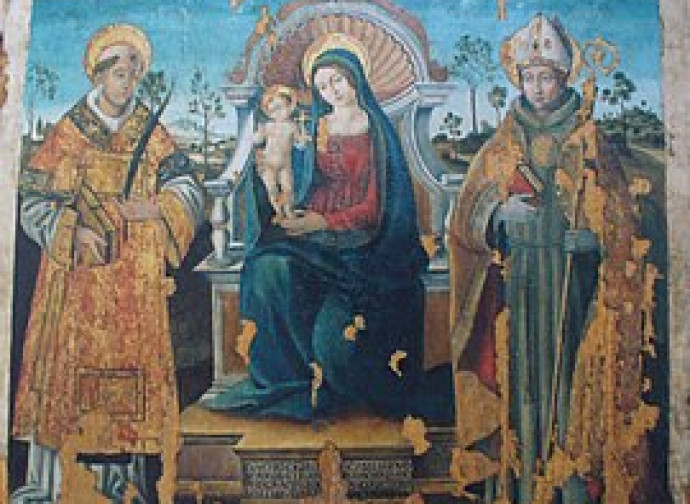Saint Severinus Abbot
In almost thirty years of mission in Noricum, Severinus founded churches and monasteries, and by his preaching he induced many souls to abandon paganism worship and convert to Christianity

Had there been a different spiritually gifted man at the borders of the Roman Empire, history might have taken a different turn; for Saint Severinus (ca. 410-482), the Apostle to Noricum, which included central Austria and part of Bavaria, had an uncommon ability to communicate with both Romans and barbarians. According to his biographer Saint Eugippius (ca 465-533) – author of a Vita sancti Severini in 46 chapters – Severinus was a monk who had been to the East as a young man. Not much else is known about his youth, nor the exact date of his birth or his family of origin (probably Roman, given the quality of his Latin): when asked, the Saint used to say that the age of a proclaimer of the Gospel was nothing less than eternity, and that indeed he had no homeland but the Kingdom of Heaven.
His apostolate in Noricum began in 455, two years after the death of Attila the Hun, who had thrown those lands into turmoil. As Severinus would tell a colleague, the mission was not born by chance: "Know only that He who did you the grace of being a priest, ordered me to come to the aid of these unfortunate people". Those people soon discovered the monk's asceticism: he walked barefoot even in winter, always wore a tunic, slept on the floor with a hairshirt around his hips, fasted assiduously and ate only once a week during Lent. They also discovered his gifts of prophecy: in Asturis, the first village of Noricum where he lived, he urged the inhabitants to do penance: "The barbarians are very close: close the city gates, organise the defence and above all pray, do penance". His advice was ignored, so he took refuge in Comagena (today's Tulln, Austria): the invasion, as a survivor testified, took place precisely on the day predicted by the Saint.
In almost thirty years of mission in Noricum, Severinus founded churches and monasteries, and by his preaching he induced many souls to abandon paganism worship and convert to Christianity. Over time, his reputation as a healer became famous: he used to heal after having ordered a few days' fast. His letters urging the collection of tithes for the poor show his ingenuity in charity works. While the Western Empire was falling apart, Severinus, thanks to his virtues and organisational skills, committed himself to the religious and material care of those frontier peoples, also taking care of their military defence. And when the invaders managed to complete their conquest, the Saint did not hesitate to meet them in person, asking them to be clement to the submitted cities and free their prisoners.
It is therefore understandable why those barbarians, whose roughness he managed to smooth, should recognise him as a man of God. Among his admirers were the king of the Alamanni, Gibuld, and the king of the Heruli, Odoacer. Around 470, Odoacer sought his advice and asked for his blessing: the Saint stared at him for a long time, predicted his victory, and advised him to act wisely on behalf of his people. In 476 Odoacer deposed the emperor Romulus Augustus and began to reign over Italy, showing respect for both the Roman institutions and the Catholic Church, despite professing to be Arian. Meanwhile, Severinus had predicted that after his death his monks would be forced to leave the region, and asked them to take his body to Italy, which they did in due time. In the last moments of his life he called his disciples around him and, intoning the Laudate Dominum in Sanctis Eius, he died when coming to the last verse: "Every soul give praise to the Lord".
Patron of: Austria, Bavaria
